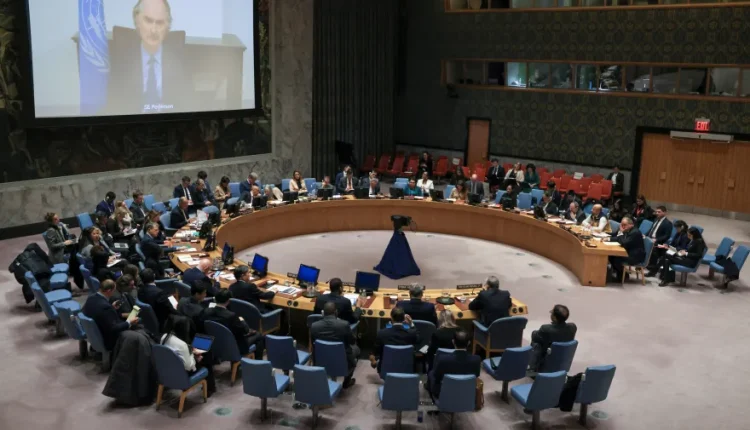UNSC calls for de-escalation, protection of civilians in NW Syria
DAMASCUS, Syria (North Press) – The U.N. Security Council urged on Tuesday all parties to the conflict to protect civilians and called for a de-escalation of violence in northwestern Syria.
The United Nations Commission of Inquiry on Syria chairman Paulo Pinheiro urged all warring parties to uphold the protection of civilians, human rights, and the Geneva Conventions.
Pinheiro also highlighted the volatile situation in northern Aleppo, where opposition factions have taken control of areas with significant Kurdish populations.
The United States attributed Syria’s ongoing crisis to the Syrian government’s refusal to engage in the political process outlined by U.N. Security Council Resolution 2254, as well as its reliance on Russia and Iran.
U.S. Ambassador Robert Wood denied any American involvement in the recent attacks by Hayat Tahrir al-Sham and Turkish-backed factions of the Syrian National Army (SNA) in northwestern Syria. He also expressed concerns about the HTS, which is “a U.S. and UN designated terrorist organization.”
The UK Deputy Permanent Representative to the UN, James Kariuki, called for de-escalation and urged all parties to adhere to international humanitarian law.
Similarly, French Ambassador Nicolas de Rivière reaffirmed that a credible political process remains the only path to lasting peace in Syria.
Representing the Syrian government, UN envoy Qusai al-Dahak blamed repeated Israeli airstrikes for enabling attacks by “terrorist” opposition factions. He said that the attacks were part of a coordinated effort involving Turkish-Israeli operations and described them as violations of U.N. resolutions and Astana agreements.
U.N. Special Envoy for Syria Geir Pedersen raised alarms about the escalating violence, warning of its potential to destabilize the region further. He expressed concerns over increased civilian displacement and casualties.
The Security Council session concluded after a tense exchange between representatives of Russia, Syria, and the United States.

